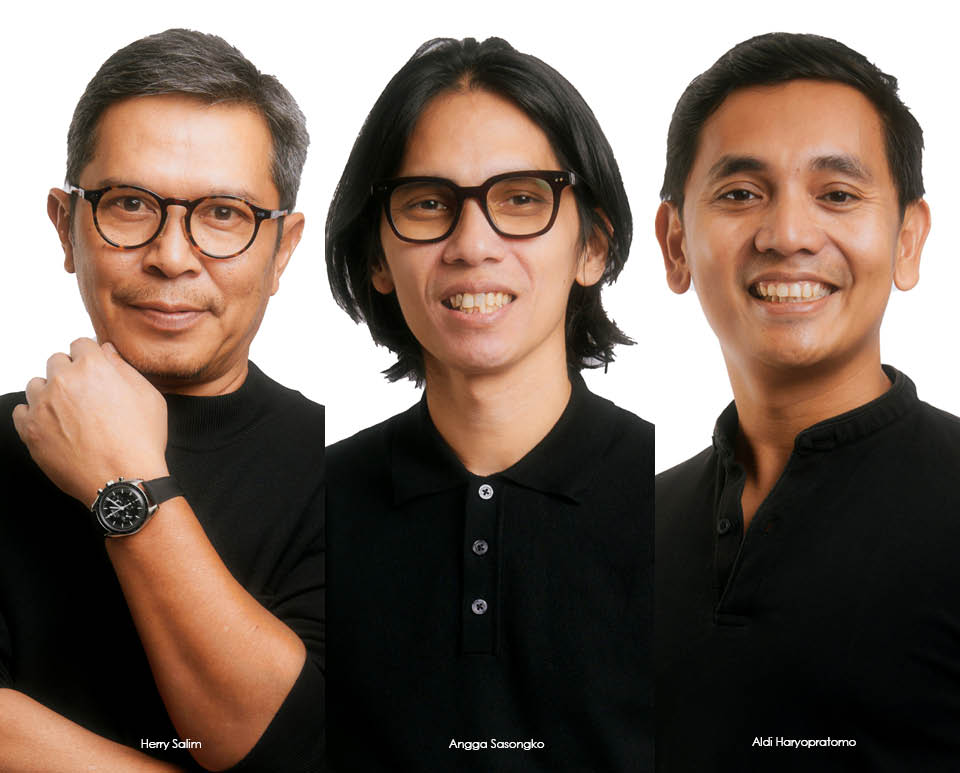
Indonesian film producer, Visinema, has upsized its expansion strategy, continuing the mission to stretch IP development beyond feature films and fast-tracking its broader approach to storytelling.
The initiative includes the recent appointment of former Disney exec Herry Salim to lead IP development and brand partnerships out of Jakarta along with adding tech entrepreneur Aldi Haryopratomo to its board.
For now, Visinema’s international footprint is still largely film based, and most visible this month at the Busan International Film Festival, where it has two features – "Ali Topan", a co-production with Kebon Studio, which screens in the “A Window on Asian Cinema” section and "24 Jam With Gaspar", a co-production with KawanKawan Media, which is the only title from Indonesia to compete for Busan’s Kim Ji Seok Award.
“Our ambition has always been to push Indonesia’s creative industry forward,” says Visinema founder and chief executive, Angga Sasongko.
“Indonesia isn’t merely a market for global entertainment; it has the potential to be a global storytelling hub,” he adds.
Perhaps the best examples of the push beyond films are theatrical release "Nussa" (2021), developed from a web series; and feature film, "Keluarga Cemara", which was adapted into a TV series in the early days of Disney+ Hotstar. Other projects include "Jalan Yang Jauh Jangan Lupa Pulang" (2023/Netflix) and "Tumbal Kenjeng Iblis" (2023/Prime Video).
Sasongko talks about “infinite possibilities for our stories to transcend mediums to become beloved IPs by fans all over Indonesia”, and has high hopes for new project, Jumbo, an animated feature that addressed critical issues for children. Details have not been confirmed.
Sasongko identified two catalysts for Indonesia’s ascendance to global storytelling status: strategic global partnerships and funding.
Already collaborating with streaming platforms including Netflix and Prime Video, he says the international film festiva...
Indonesian film producer, Visinema, has upsized its expansion strategy, continuing the mission to stretch IP development beyond feature films and fast-tracking its broader approach to storytelling.
The initiative includes the recent appointment of former Disney exec Herry Salim to lead IP development and brand partnerships out of Jakarta along with adding tech entrepreneur Aldi Haryopratomo to its board.
For now, Visinema’s international footprint is still largely film based, and most visible this month at the Busan International Film Festival, where it has two features – "Ali Topan", a co-production with Kebon Studio, which screens in the “A Window on Asian Cinema” section and "24 Jam With Gaspar", a co-production with KawanKawan Media, which is the only title from Indonesia to compete for Busan’s Kim Ji Seok Award.
“Our ambition has always been to push Indonesia’s creative industry forward,” says Visinema founder and chief executive, Angga Sasongko.
“Indonesia isn’t merely a market for global entertainment; it has the potential to be a global storytelling hub,” he adds.
Perhaps the best examples of the push beyond films are theatrical release "Nussa" (2021), developed from a web series; and feature film, "Keluarga Cemara", which was adapted into a TV series in the early days of Disney+ Hotstar. Other projects include "Jalan Yang Jauh Jangan Lupa Pulang" (2023/Netflix) and "Tumbal Kenjeng Iblis" (2023/Prime Video).
Sasongko talks about “infinite possibilities for our stories to transcend mediums to become beloved IPs by fans all over Indonesia”, and has high hopes for new project, Jumbo, an animated feature that addressed critical issues for children. Details have not been confirmed.
Sasongko identified two catalysts for Indonesia’s ascendance to global storytelling status: strategic global partnerships and funding.
Already collaborating with streaming platforms including Netflix and Prime Video, he says the international film festival circuit will also “help shed more spotlight on Indonesia’s stories and talent”.
Additional alliances are in the works “to further our global footprint”.
The other key requirement is funding. “Previously, investments in Indonesia’s film industry were considered ‘passion projects’ with limited financial upside,” he says.
“However,” he adds, “we’ve proven that a strong business model can transform storytelling projects into a profitable sustainable venture. As funding grows, so will our ability to diversify stories and extend our global reach”.





























